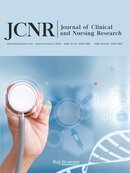Abstract
Objective: To study the effect of family follow-up nursing in rehabilitation of elderly autistic patients in community institutions. Methods: 120 elderly autistic patients from February 2021 to July 2022 were randomly divided into a control group and a test group with 60 cases each. The patients in the control group were cared for at home by their family members, while the patients in the test group were given family follow-up rehabilitation care on the basis of the control group. The compliance of patients in the rehabilitation process, the UCLA loneliness score, the autism treatment assessment scale (ATEC) score of patients after this nursing care, and the quality-of-life scores of patients of the two groups before and after nursing care were compared. Results: The compliance of patients in the process of rehabilitation treatment was better in the experimental group than in the experimental group. The physical function score of patients after nursing was better in the experimental group than in the experimental group. The UCLA loneliness score and ATEC score of patients in the experimental group after nursing were lower than those of the control group (P < 0.05); the quality-of-life score was higher in the experimental group (P < 0.05). Conclusion: The application of family follow-up nursing in the rehabilitation of elderly autistic patients in community institutions can significantly improve patients’ compliance and improve their prognosis, thus having high clinical value.
References
Gu C, Sun W, Zhang L, et al., 2017, Study on the Current Situation and Measures of Community Elderly Continuous Home Care. Abstract of the World’s Latest Medical Information, 16(31): 546–547.
Liu H, 2015, Planning and Management of Overall Rehabilitation of Autistic Families. Disability In China Human, 6(12): 58–59.
Liu M, Zhang K, 2017, Research on the Path of Social Work Intervention in Autistic Families from the Perspective of Ecosystem Theory: Taking Wuhu City as an Example. Journal of Kaifeng Institute of Education, 37(6): 281–282.
Wei L, 2021, Effect of Comprehensive Nursing on Depression and Quality of Life in Elderly Patients with Acute Myocardial Infarction. Special Health, 2021(25): 253
Zhang L, 2017, Effect of Home Follow-Up Nursing on Rehabilitation Compliance of Elderly Stroke Patients in the Community. China Health Standard Management, 8(05): 155–157.
Russell DW, 1996, UCLA Loneliness Scale (Version 3): Reliability?Validity and Factor Structure. Journal of Personality Assessment?66(1): 20–40.
Zhang Y, Zhang Y, Huang Q, et al., 2013, The Effect of Family Intervention on Social Support and Quality of Life in Rural Schizophrenics Modern Preventive Medicine, 40(22): 3.
American Psychiatric Association, 2013, Diagnostic and Statistical Manual of Mental Disorders (DSM-5) 5th Edition. American Psychiatric Association Publishing?Washington, DC, 50–54.
Hu Y, Ping J, 2022, The Effect of Standardized Cancer Pain Nursing Based on Gqol-74 Scale on the Bad Mood, Pain and Sleep of Patients with Advanced Liver Cancer International Journal of Nursing, 41(4): 5.
Wang J, Zhang X, 2015, Discussion on Loneliness and Nursing Intervention of Empty Nest Elderly People in Community. Contemporary Nurses’ Ten-Day Journal, 2015(9): 15–17.
Gu C, Sun W, Zhang Z, et al., 2017, Continuous Home Care for the Elderly in the Community Research on Situation and Measures. World’s Latest Medical Information Abstract, 16(31): 546–547.
Hu H, Wang Z, Li X, et al., 2014, Loneliness and Depression of the Elderly in Nursing Homes Research on the Situation and its Relationship J7. China Nursing Management, 14 (10): 1033–1036.
